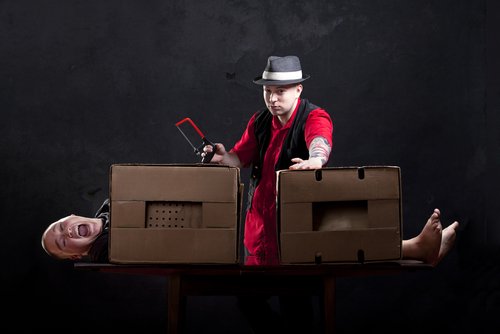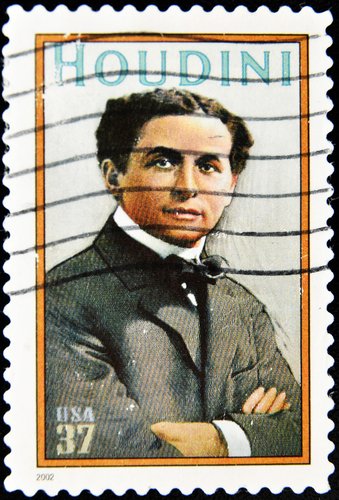
On this day in 1922, the New York appellate division granted magician Horace Goldin an injunction against Clarion Photoplays, Inc., preventing it from disclosing in a motion picture his trade secret for “Sawing a Woman in Half.”
The trial court record included an affidavit by Harry Houdini, who testified that this trick did indeed originate with Goldin:
 “Harry Houdini, a producer of magical feats and illusions since 1882, and president of the Society of American Magicians and of the Magicians’ Club of London, states that, so far back as his memory and records go, he is positive that he never witnessed a production of the illusion ‘Sawing a Woman in Half’ by any one other than the plaintiff.”
“Harry Houdini, a producer of magical feats and illusions since 1882, and president of the Society of American Magicians and of the Magicians’ Club of London, states that, so far back as his memory and records go, he is positive that he never witnessed a production of the illusion ‘Sawing a Woman in Half’ by any one other than the plaintiff.”
The appellate court credited this and other affidavits, and rejected the defense that this trick actually originated in ancient Egypt:
“[D]efendants claim there is no novelty in the illusion, because in the British Museum there is an Egyptian papyrus which contains an account of a magical séance given by a certain Tchatchaemankh before King Khufu, B. C. 3766, and wherein it is stated of the magician: ‘He knoweth how to bind on a head which hath been cut off,’ and in proof of this they refer to a publication called ‘Magic,’ written by one Albert A. Hopkins, and published in New York City in 1897. But upon examination of the said book it appears that … he offers no explanation as to how it was accomplished.”
Magicians’ tricks are good examples of how trade secrets can be valuable because they are secret – and how that value can be destroyed once the secrets are leaked:
“It is shown that, as the result of the motion picture in question attempting to expose or explain the manner in which plaintiff performs his illusion, it is deemed by the management of the Keith [vaudeville] circuit, whereon plaintiff has exhibited the same for a long time, to have the effect of depreciating the value of plaintiff’s act to such an extent that, as they have advised plaintiff in writing, it would render plaintiff’s act absolutely valueless, since the very mystery or trick of the act would be gone; and therefore, if the defendants’ picture is exhibited in the same towns where the said Keith circuit had booked plaintiff’s act, they notified him that it would be necessary for them to cancel his act therein.”
The court granted Goldin $10 in costs.
The case was Goldin v. Clarion Photoplays, Inc., 202 A.D. 1, 4-5 (N.Y. App. Div. 1922).

